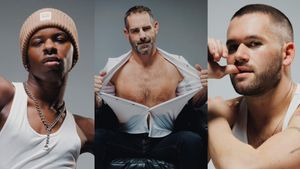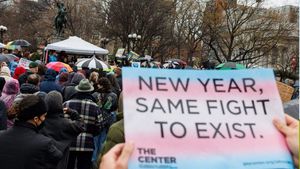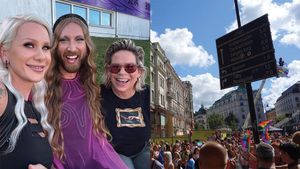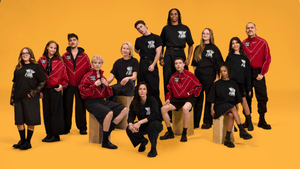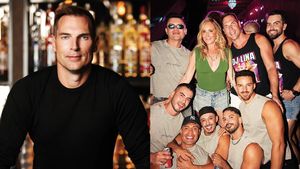Living through mpox (formerly called monkeypox) is a literal pain in the ass. Profound and indescribable pain. Since this outbreak started in April of 2022, we’ve read many panicked stories, seen lots of scientific charts, and heard outrageous stigmatizing statements. But we have not heard enough from the gay and bisexual men who have endured mpox, particularly outside of the U.S. or Europe.
While the U.S., Canada, and western European countries have seen a sustained decrease in diagnoses since cases were first reported in April, cases in Latin America continue to rise. Mexico has no vaccines, no treatment, and only has five diagnosis centers in a country of over 130 million people. Activists have mobilized to call for vaccine access and better testing and treatment, but they’ve encountered an apathetic and disorganized government. It’s clear that the Mexican government doesn’t believe the lives of gay and bisexual men are worth investing in. This outbreak, like COVID, has only illuminated the existing inequities that exist globally for queer people, people of color, the poor, and people living with HIV.
Alejandro Dungla is a food writer in Mexico City. He has a degree in gastronomy and writes about different social aspects of Mexican cuisine. He also lived through weeks of mpox. As the virus wanes in other parts of the world, I wanted to share Alex’s story in hopes that people will understand that this outbreak persists globally — and that has an enormous impact on the physical and mental health of our community. Mpox is not just a public health issue, it’s also a matter of social justice.
When did you realize you might have mpox and what did you do?
I started having symptoms on September 10 [2022]. At first, it was a fever that I controlled with paracetamol. On the third day, my anus start itching and I realized something was wrong. I went to the doctor and he realized it was monkeypox, as he had previously diagnosed other patients. He sent me to the Hospital de Infectologia del Centro Médico La Raza to have an official diagnosis.
What were your symptoms from mpox?
Fever, body pain, fatigue, and the typical lesions that hurt a lot — and I mean a fucking lot.
What sort of care did you receive in Mexico?
I was hospitalized for seven days. They wanted to keep me in observation because I’m also HIV-positive. On the third day, the pain was unbearable and they gave me intravenous opioid analgesics plus paracetamol and antibiotics.
What has been your experience with stigma related to mpox?
All the health care staff was really friendly at the hospital. I do recall one nurse commenting that “you were a bad boy,” and I was like, I only have sex. That’s not being a bad boy, that is something normal. I think the stigma I suffered comes from the federal government of Mexico, which hasn’t done anything to buy vaccines because 95 percent of the population affected by monkeypox are queer men.
What would you like to see the government do in response to mpox?
Take responsibility and protect the population by buying vaccines. LGBTQ+ people are not a group of second-class citizens to be treated in this way. Our suffering because of this epidemic can be avoided.
Why is it important for you to speak out about having mpox?
Because there’s no shame in suffering from this disease, just as there is no shame in suffering from diabetes or flu. There are lot of people around the world suffering because of monkeypox and we have rights and a voice.












































